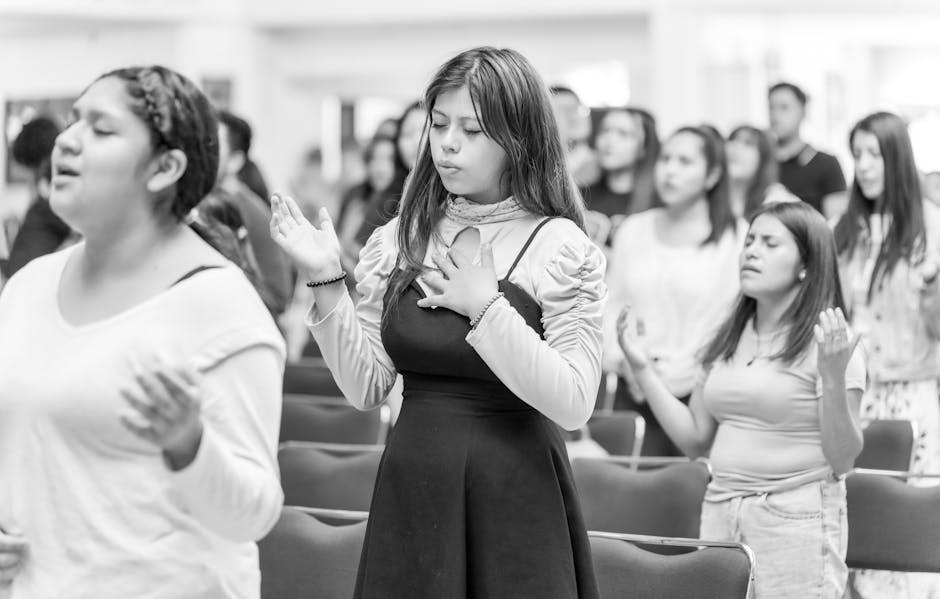Alcohol can loosen tongues and lower defenses – and sometimes it leads to a drunk kiss that feels thrilling in the moment and confusing afterward. Maybe you were single and simply followed a spark, or maybe you’re partnered and now wrestling with what it meant. Perhaps you remember every detail, or perhaps the night is a blur stitched together by friends’ stories. This guide reframes that experience with clear language and practical reflection so you can understand a drunk kiss, decide whether it matters, and choose what to do next without panic or self-judgment.
What a tipsy moment can – and can’t – reveal
A drunk kiss does not automatically equal deep truth or utter meaninglessness. Alcohol affects people differently, and there are degrees of intoxication. Someone who is slightly buzzed still retains most judgment – they may feel bolder yet basically understand their choices. Someone fully inebriated, on the other hand, can’t weigh consequences and may not recall the event later. That’s why the emotional weight of a drunk kiss depends on the people involved, their intentions before drinking, and how aware they were in the moment.
Another nuance: liquid courage often amplifies urges that already exist. If you’ve been harboring a quiet attraction, a drunk kiss might be the nudge that lets desire surface. But the same kiss could also be a messy impulse with no deeper thread. Context is everything – where you were, how connected you felt to the other person beforehand, and whether affection had been simmering or if it was spontaneous chaos at closing time.

Keep in mind the difference between choice and excuse. Even when alcohol is in the picture, a drunk kiss doesn’t erase agency after the fact. You can acknowledge impaired judgment without pretending the decision appeared out of thin air. That balance – owning what happened while understanding why it happened – helps you speak about it honestly and decide what comes next.
When you’re single versus when you’re committed
If you’re unattached, a drunk kiss is usually just part of the social landscape – fun, awkward, forgettable, or intriguing, depending on the vibe. You can explore what you felt, follow up if you’re curious, or let it fade if it was situational and shallow. The calculus changes when you’re in a relationship. Then the same act carries relational weight, because commitments shape boundaries. A drunk kiss in that context might signal strain, curiosity about someone else, or simple poor judgment under pressure – and the remedy is thoughtful communication, not denial.
Is it cheating? How to think it through
Some couples define cheating strictly: any romantic or sexual contact with another person qualifies. Others set nuanced boundaries together. The label matters less than the shared understanding. Use the points below to evaluate a drunk kiss within your situation.

Commitment level. If you haven’t defined exclusivity, a drunk kiss may fall into a gray area. In an established, exclusive partnership – especially in marriage – it likely crosses a boundary you both assume is there.
Degree of intoxication. Intoxication doesn’t absolve responsibility, but it affects intent. Someone barely buzzed who pursues a drunk kiss is making a clearer choice than someone who blacked out and can’t recall events. That distinction can change how partners process hurt and repair.
Length and intensity. A fleeting peck and a prolonged makeout carry different meanings. Tongue, lingering closeness, roaming hands – these details shift how a drunk kiss lands emotionally for the people involved.

Who the other person is. Stranger versus acquaintance versus coworker versus old flame – each scenario changes stakes. A random encounter may fade; a drunk kiss with someone you regularly see can complicate everyday life or reveal an existing attraction.
Who initiated it. Initiation can suggest intent. If you moved first, your choice reads differently than being surprised and not stopping quickly. That difference won’t erase the act, but it informs accountability and next steps.
Pattern versus one-off. A single lapse can be processed. Repetition signals a pattern – and a drunk kiss that keeps happening points to deeper issues, not just a wild night.
Trust history. In a relationship with strong trust, openness, and repair, partners may navigate a drunk kiss without long-term damage. Where trust is already fragile, the same act can reopen old wounds.
Before you bring it up, check your memory
It’s tempting to seek closure immediately, yet clarity first saves everyone confusion. Ask yourself what you truly remember. If your recollection is patchy, reality-test with a friend who was present – someone who can calmly recount what they saw without stirring drama. Did it look mutual or sloppy? Did you seem affectionate, upset, or disengaged afterward? A more accurate picture helps you decide whether to discuss the drunk kiss or let it pass – and if you do discuss it, you’ll enter the conversation with fewer distortions.
If both of you were intoxicated and it felt light, you may choose to move on. If you cried later, felt you crossed a line, or worry you hurt someone, then an honest follow-up is kinder than avoidance. A drunk kiss can be small in the grand scheme, but the way you handle it – hiding versus owning, dismissing versus listening – often matters more than the act itself.
Do you regret it – and what kind of regret is it?
Regret comes in flavors. There’s situational regret – “not my proudest moment” – that fades with time. There’s moral regret, when a drunk kiss violated your values or your promises. And there’s social regret: you kissed someone in your building, your class, or your office, and now things feel awkward in the elevator. Different regrets suggest different remedies. If you feel you led someone on, a quick apology clarifies your intention. If you broke a boundary with a partner, that conversation needs care, accountability, and space for their feelings.
It helps to separate outcome from intention. If your aim was comfort after a hard day and you stumbled into a drunk kiss, name that honestly. If your aim was to test the waters with a person you already liked, own that, too. Being specific with yourself will make any later conversation more sincere and less defensive.
Eight common scenarios – and how to respond
Not all situations are equal. Below are frequent ways a drunk kiss shows up, with guidance for handling each one.
The messy quick kiss. It happened fast, tasted like someone else’s cocktail, and left no lasting warmth. If the moment had no spark, there’s rarely a reason to memorialize it. Should the other person bring it up, acknowledge the haze and keep it respectful. A drunk kiss like this belongs in the recycling bin of memories.
The drunk friend kiss. With some friends, tipsy affection is background noise – a peck, a laugh, and a shrug. With others, it complicates a previously platonic dynamic. If you suspect real feelings on either side, face it directly. Clarify whether the drunk kiss was silly and one-off, or whether it revealed something worth exploring. Gentle honesty protects the friendship either way.
The regretful crush kiss. This is the moment you reached for someone who you know has a soft spot for you, not because you wanted a future but because you wanted reassurance. The kindest move now is clarity. Thank them for the good intentions you sensed, apologize for mixed signals, and state that the drunk kiss doesn’t reflect a desire to pursue more.
The rebound kiss. Fresh off a breakup, it’s common to redirect attention just to feel wanted again. If a drunk kiss was part of that coping, label it as such when you talk to the other person. Avoid building something on a foundation that was meant for temporary relief.
The emotional ex kiss. History plus proximity can equal magnetism – even after a single drink. The danger is the loop: a drunk kiss with an ex can revive rituals you intentionally left behind. If you don’t want to restart the story, say so clearly. Familiarity isn’t the same as compatibility, and you can respect the past without reopening it.
The one-night-stand spark. You spent an evening orbiting each other, talked far too intensely for strangers, then shared a drunk kiss before parting without numbers. Romantic minds turn that into fate. Realistic minds recognize the rose tint of alcohol. If the memory makes you smile, keep the smile. If it makes you long for a missing soulmate, remind yourself you met one version of a person in unusual lighting.
The bold move on a long-standing crush. Maybe the bar gave you nerve you never had. You finally acted, and now you worry you said too much with your mouth and not enough with your words. The fix is conversation. Name what the drunk kiss expressed, confirm consent mattered, and ask how they felt. Whatever the answer, you’ll trade anxious guessing for clarity.
The cheating kiss. When you’re partnered and you cross a line, the honest route is the only route. A drunk kiss may sting less if you disclose it quickly, take responsibility, and listen without minimizing. Your partner’s response is theirs to make. Your job is to be transparent about what happened, why it happened, and how you’ll prevent it from happening again.
Communication: timing, tone, and content
If you decide to talk about a drunk kiss, three things matter: timing, tone, and content. Choose a moment when nobody is rushed or inflamed. Speak without theatrics – calm, specific, and direct beats dramatic confessionals. As for content, stick to the facts you remember, how you felt then, how you feel now, and what you hope for going forward. Invite the other person’s perspective and resist the urge to control their reaction. They might crack a joke, feel flattered, or go quiet. They might be hurt. Whatever arises, listening is a form of repair.
For partners, add a practical layer. If bars and work parties are where temptations brew, plan safeguards: leave together, set check-in points, or decide ahead of time what counts as a no-go. Agreeing on boundaries before the next event reduces the chance that a drunk kiss becomes the repeat guest nobody wants.
How to decide whether to follow up
After you sober up, ask three questions. First: do I want contact with this person when I’m clear-headed? If the answer is no, a drunk kiss was a mood, not a message. Second: would conversation make life less awkward or more so? For neighbors and coworkers, a quick acknowledgment can cut tension. Third: does silence feel like avoidance? If you’re dodging your own guilt or someone else’s feelings, that’s a clue that a brief, kind exchange is healthier than pretending nothing happened.
When you choose to reach out, keep it simple. “Last night got messy, and I wanted to be straightforward. The drunk kiss surprised me. I don’t want to lead you on, but I respect you.” Or, if you are curious: “I’ve liked you for a while, and the drinks pushed me to act. If you’re open, I’d like to talk sober.” Either message trades ambiguity for integrity.
If you were the one surprised by it
Sometimes you didn’t initiate the drunk kiss – you were simply swept into it. If you didn’t want it and froze, you may carry a strange mix of frustration and self-blame. Be kind to yourself. You’re allowed to set boundaries after the fact: “I wasn’t comfortable with that, and I don’t want it to happen again.” If you were mildly receptive in the moment but uninterested afterward, a short, polite note prevents lingering misunderstanding.
Repairing trust after a boundary breach
When a relationship is involved, repair takes more than apologies. Accountability means describing the sequence – not to justify, but to show you understand how you got there. Identify triggers: stress, flirty dynamics, certain social settings. Replace them with protections. If a drunk kiss was a symptom of unmet needs, talk about those needs openly. Repair also includes patience: your partner may need time, space, and reassurance expressed through consistent behavior, not just promises.
When to let it go
It’s easy to place a drunk kiss under a microscope and forget proportionality. Not every stumble deserves a full inquiry. If no one was hurt, no expectations were built, and no ongoing connection exists, archiving the memory is valid. Growth sometimes looks like choosing not to dramatize what was, in essence, the predictable chaos of a night out.
When to take it seriously
Take it seriously if someone’s feelings were tangled, if a promise was broken, or if you recognize a pattern of seeking attention through borderline behavior. A drunk kiss can be a flashing arrow toward loneliness, curiosity outside the relationship, or a habit of avoiding hard conversations until alcohol speaks for you. Those signals are opportunities to adjust – to confront what you want, fortify your boundaries, or strengthen how you ask for connection.
Practical scripts for awkward places
Elevator encounter with a neighbor: “About the other night – I’d rather keep things friendly in the building. I hope that’s okay.” Quick, considerate, done. A drunk kiss doesn’t have to turn neighborly small talk into a saga.
Chat with a coworker: “I value working well together. I shouldn’t have blurred lines. Let’s keep things professional.” This names the boundary without inviting gossip about the drunk kiss.
Text to a friend: “We got a little carried away. I care about our friendship first. Can we reset?” Center the bond; demote the drunk kiss to a one-off blip.
Talk with an ex: “I felt the pull of history, but I don’t want to reopen it. Wishing you well.” The drunk kiss becomes a reminder of chemistry – not a contract.
Owning the story you want to tell
You can decide how this experience fits into your personal narrative. For some, a drunk kiss is comic relief – a story told with a wince and a smile. For others, it’s a gentle turning point that clarifies what they want and what they won’t do again. Either way, clarity and compassion serve you: clarity about motives and boundaries, compassion for the imperfect human who did something impulsive after a long week. If there’s a partner in the picture, add transparency to that mix. If there isn’t, add curiosity about what truly lit you up – the person, the mood, or the simple thrill of being wanted.
A drunk kiss can be a hollow impulse or a breadcrumb pointing toward real desire. It can be nothing, or it can nudge you to change something. What gives it meaning is not the alcohol but the choices you make after you sober up – to communicate, to apologize, to explore, or to let it go.